- Home
- Brian Lumley
Vamphyri! Page 2
Vamphyri! Read online
Page 2
“Yes?” Krakovitch’s head was whirling.
“Let me make it quite clear: I want the answers. As soon as possible. But there has to be a limit, and that limit’s a year. By then the branch will be working at 100 percent efficiency, and you and I will know everything. And we’ll understand everything. You see, when we have all the answers, Felix, then we’ll be as smart as the people who did this. Right?”
“That seems logical, Party Leader.”
“It is, so get to it. Good luck …” The phone emitted a continuous buzzing tone.
Krakovitch replaced it carefully in its cradle, stared at it for a moment, then started for the door. In his head he made lists—in loose order of precedence—of things to be done. In the western world such a massive tragedy could never be covered up, but here in the USSR it wouldn’t be nearly so difficult. Krakovitch wasn’t sure whether that was a good thing or not.
1. The dead men had families. They would now have to be told some sort of story—maybe there had been a “castastrophic accident.” That must be his go-between’s responsibility.
2. All E-Branch personnel must be recalled at once, including the three who knew what had happened here. They were in their homes right now, but they knew enough to say nothing.
3. The bodies of twenty-eight E-Branch colleagues would have to be gathered up, coffined, prepared as best as possible for burial. And that would have to be done here, by the survivors and those returning from leave of absence.
4. Recruitment must be started at once.
5. A Second in Command must be appointed, so that Krakovitch could begin a proper, complete investigation from scratch. That was something he must do himself, just as Brezhnev had ordered it.
And, 6 … he would think of 6 when the first 5 were working! But before any of that—
Outside he found the driver of the Army truck, a young Sergeant in uniform. “What’s your name?” he asked, listlessly. He must get some sleep soon.
“Sergeant Gulharov, sir!” he slammed to attention.
“First name?”
“Sergei, sir!”
“Sergei, call me Felix. Tell me, did you ever hear of Felix the Cat?”
The other shook his head.
“I have a friend who collects old films, cartoons,” Krakovitch told him, shrugging. “He has connections. Anyway, there’s a funny American cartoon character called Felix the Cat. He’s a very wary fellow, this Felix. Cats usually are, you know? In the British Army, they call bomb disposal officers Felix, too—they have to tread so very warily. Ah! Maybe my mother should have called me Sergei, eh?”
The Sergeant scratched his head. “Sir?”
“Never mind,” said Krakovitch. “Tell me: do you carry spare fuel?”
“Only what’s in the tank, sir. About fifty litres.”
Krakovitch nodded. “Right, let’s get in the cab and I’ll tell you where to drive.” He directed him around the Chateau to a bunker near the helicopter landing area, where they kept the Avgas. It was very close, but better to take the truck to the Avgas than bring the Avgas to the truck. On their way, bumping over the rough ground, the Sergeant asked, “Sir, what happened here?”
For the first time Krakovitch noticed that his eyes had a glazed look. He had helped load his truck’s awful cargo. “Never ask that sort of question,” Krakovitch told him. “In fact as long as you’re here—which will probably be a long, long time—don’t ask any questions. Just do as you’re told.”
They loaded the cans of Avgas just inside the truck’s tailgate and drove to a wooded corner of the Châtea’s grounds where the earth was very boggy. Sergei Gulharov protested, but Krakovitch made him drive on until the truck was quite bogged down in churned up snow and mud. When they could go no farther, Krakovitch said, “This will do.”
They got out and unloaded the Avgas and, still protesting, the Sergeant helped Krakovitch pour the aviation fuel all around and into the truck. When they were through, Krakovitch asked, “Anything in the cab that you want?”
“No, sir.” Gulharov was agitated. “Sir, er, Felix—you can’t do this. We must not do this! I’ll be court-martialled, shot even! When I get back to barracks, they’ll—”
“Are you married or single?” Krakovitch poured a thin trail of Avgas from the truck well back into the trees. It cut a dark groove in the snow.
“Single.”
“Me too. Good! Well, you’re not going back to barracks, Sergei. From now on you work with me, always.”
“But—”
“No buts. The Party Leader has ordered it. You should feel honoured!”
“But my Sergeant-Major, and the Colonel, they—”
“Believe me,” Krakovitch again interrupted, “they’ll be proud of you. Do you smoke, Sergei?” He patted the pockets of his now less than white smock, found cigarettes.
“Yes, sir, sometimes.”
Krakovitch offered him a cigarette and put one in his own mouth. “I seem to have forgotten my matches.”
“Sir, I—”
“Matches,” Krakovitch repeated, holding out his hand.
Gulharov surrendered, began to reach into a deep pocket. If Krakovitch was crazy, it would work out all right in the end. They’d lock him away and Sergeant Sergei Gulharov would be exonerated. Of course, he could always assume that he was mad and jump on him right here and now. That way, if he was mad, he’d be a hero. He readied himself.
Krakovitch saw it coming, only seconds away. That was his talent: precognition, to see in advance. In situations like this it was as good as telepathy; he could almost feel the young Sergeant’s muscles bunching. “If you do that,” he said very quickly and earnestly, staring straight into the other’s eyes, “then they really will court-martial you!”
Gulharov bit his lip, clenched and unclenched a fist, shook his head and backed off a pace.
“Well?” Krakovitch was patient. “Do you really think I’d take the Party Leader’s name in vain?”
The Sergeant took out a box of matches and handed them over. They moved away from the Avgas trail. Then Krakovitch lit their cigarettes, cupped his hand over the flame until the entire match was burning, and finally tossed it towards the lethally scarred snow.
Blue, near-invisible flames leaped back towards the truck thirty yards away. The snow along the groove collapsed in upon itself under the sudden intense heat. And the truck ignited in a blinding flash of fire and brilliant blue light.
The two men backed off, watched the flames roar higher. They could hear the crackling, hissing and popping of its ancient corpse cargo, which seemed to be burning nicely. Back where you came from, lads, thought Krakovitch, and no way anyone can ever disturb you again! “Come on,” he said out loud. “Let’s get away before the truck’s fuel tank goes up.”
They ran clumsily through the snow, back towards the Chateau. Oddly, it wasn’t until they were in the shade of the Chateau itself that the tank did go, and by then the truck was a blazing shell anyway. Hearing the thunderous roar and feeling something of its concussion, they looked back. Cab and chassis and superstructure had all flown apart; bits of blazing debris were falling in the snow; a mushroom of smoke shot with flame was uncurling itself high over the trees. It was done …
Krakovitch spoke for some time on the telephone to his go-between, an anonymous voice which seemed hardly interested in what he was saying, yet precise and cutting as a razor when its owner required more information. He finished off by saying: “Oh, and I’ve a new assistant here, a Sergeant Sergei Gulharov, from the supply and transport barracks in Serpukhov. I’m keeping him on. Can you get him permanently posted to the Chateau, as of now? He’s young and strong and I’ll have plenty of work for him.”
“Yes, I’ll do that,” came the cool, clear answer. “He’ll be your odd-job man, you say?”
“And my bodyguard,” said Krakovitch, “eventually. I’m not much physically.”
“Very well. I’ll check out the chances of getting him on a military close protection
course. Weapons, too, if he’s not up to scratch. Of course, we could take a shortcut and get you a professional …”
“No,” Krakovitch was firm. “No professionals. This one will do. He’s fairly innocent and I like that. It’s refreshing.”
“Krakovitch,” said the voice on the other end, “I need to know this. Are you a homosexual?”
“Of course not! Oh! I see. No, I need him genuinely—and he looks about as gay as a shipyard welder! I’ll tell you why I want him right now—because I’m alone here. And if you were here you’d know what I mean.”
“Yes, I’m told you’ve had to weather quite a lot. Very well, leave it with me.”
“Thank you,” said Krakovitch. He broke the connection.
Gulharov was impressed. “Just like that,” he said. “You have a lot of power, sir.”
“It seems that way, doesn’t it?” Krakovitch smiled tiredly. “Listen, I’m dead on my feet. But there’s one more thing to do before I can sleep. And let me tell you, if you think what you’ve seen so far is unpleasant, what you’re about to see is far worse! Come with me.”
He led the way through the chaos of shattered rooms and piled rubble, from the covered-in courtyard area into the main, original building, then up two flights of time-hollowed stone stairs into one of the twin towers. This was where Gregor Borowitz had had his office, which Dragosani had turned into his control room on the night of the horror.
The stairwell was scarred and blackened, with tiny fragments of shrapnel, flattened lead bullets and copper cases lying everywhere. The stink of cordite was still heavy in the air. That would be from blast grenades, tossed down here from above when the tower came under attack. But none of this had stopped Harry Keogh and his Tartars. On the second floor landing the door to a tiny anteroom stood open. The room had served as an office for Borowitz’s secretary, Yul Galenski. Krakovitch had known him personally: a generally timid man, a clerk with no extrasensory talent. Just staff.
Between the open door and the stairwell’s safety rail, face down on the landing, lay a corpse in the Château’s duty uniform: grey coveralls with a single diagonal yellow stripe across the heart. Not Galenski (he had been a “civvies only” man) but the Duty Officer. The corpse’s face lay quite flat on the floor in a pool of blood. Flatter than it should. That was because there was very little of actual face left, just a raw flat mess.
Krakovitch and Gulharov stepped carefully over the body, entered the little office. Behind a desk, crumpled in one corner, Galenski sat clutching a rusty curved sword where it stuck out of his chest. It had been driven home with such force that he was pinned to the wall. His eyes were still open, but no longer terrified. From some people, death steals all emotion.
“Mother in heaven!” Gulharov whispered. He’d never seen anything like this. He wasn’t even a combat soldier, not yet.
They went through a second door into what had been Borowitz’s office.
It was spacious, with great bullet-proof bay windows looking out and down from the tower’s curving stone wall toward distant woodland. The carpet was burned and stained here and there. A massive block of a desk in solid oak stood in one corner, receiving light from the windows and protection from the stone wall at its back. As for the rest of the room: it was a shambles—and a nightmare!
A shattered radio spilled its guts onto the floor; walls were pockmarked and the door splintered from the impact of sprayed bullets; the body of a young man in Western styled clothes lay where it had fallen, ripped by machine gun fire, almost in two pieces behind the door. It was glued to the floor with its own blood. This was Harry Keogh’s body: nothing much to look at, but there was no fear or pain on his white, unmarked face.
As for the nightmare: that lay propped against the wall on the other side of the room.
“Boris Dragosani,” said Krakovitch, pointing. “The thing pinned to his chest is what controlled him, I think.” He stepped carefully across the room to stand gazing down on what was left of Dragosani and his parasite creature; Gulharov was right behind him, not wanting to get too close.
Both of Dragosani’s legs were broken and lay at weird angles. His arms hung slack down the wall to the skirting, elbows just off the floor, forearms at ninety degrees and hands projecting well beyond the cuffs of his jacket. They were hands like claws, big, powerful and grasping, frozen in Dragosani’s final spasm. His face was a rictus of agony, made worse by the fact that it was hardly a human face at all, and worse still by the gash that split his skull ear to ear.
But his face!
Dragosani’s jaws were long as some great hound’s, gaping open to display curving needle teeth. His skull was misshapen, and his ears were pointed where they curved forward and lay flat against his temples. His eyes were ruptured red pits above a nose long and wrinkled and flattened to show gaping nostrils, like the convoluted snout of some great bat. That was how he looked: part man, part wolf, part bat. And the thing pinned to his chest was worse.
“What … what is that?” Gulharov gasped out the question.
“God help me,” Krakovitch shook his head, “I don’t know! But it lived in him. I mean, inside him. It only came out at the end.”
The trunk of the thing had the form of a great leech some eighteen inches long, but tapering to a tail. There were no limbs; it seemed to cling to Dragosani’s chest by suction, and was held there by a sharp stake formed of the splintered hardwood stock of a heavy-duty machine gun; its skin was grey-green, corrugated. Gulharov saw that its head, flat and cobra-like—but eyeless, blind—lay on the carpet a little apart.
“Like … like some gigantic tapeworm?” Gulharov’s horror was plain on his face.
“Something like that,” Krakovitch nodded grimly. “But intelligent, evil, and deadly.”
“Why have we come up here?” Gulharov’s Adam’s apple bobbed. “There are fifty million better places to be.”
Krakovitch’s face was white, pinched. He could fully appreciate Gulharov’s feelings. “We’ve come up here because we have to burn this, that’s why.” His talent again, warning him that both Dragosani and his symbiont must be destroyed, utterly. He looked around, saw a tall steel filing cabinet standing against the wall to one side of the door. He and Gulharov tore out the shelving, turning the cabinet into a metal coffin. They lowered it onto its back and dragged it across the floor to Dragosani.
“You take his shoulders, I’ll take his thighs,” said Krakovitch. “Once we’ve got him in here we can close the door and slide the cabinet down the steps. Frankly, I don’t fancy touching him. I’ll touch him as little as possible. This way has to be best.”
They gingerly lifted the corpse, strained to get it over the rim of the cabinet, lowered it inside. Gulharov went to close the door and the projecting stake got in the way. He grasped the splintered stock in both hands—and the mental warning hit Krakovitch like a fist in his heart!
“Don’t touch that!” he yelled, but too late.
As Gulharov wrenched the stake free, so the leech-thing—headless as it was—came alive. Its hideous slug-like body began to lash in a frenzy, so that it almost ejected itself from the cabinet. At the same time its leathery skin broke open in a dozen places, putting out protoplasmic tentacles that writhed and vibrated in a sort of mindless agony. These pseudopods whipped out, struck the sides of the cabinet and recoiled, settled on Dragosani’s body. They passed through clothing and dead flesh and burrowed into him. More of them sprouted from the main body; they formed barbs, hooked themselves into Dragosani’s flesh. One of the tentacles found his chest cavity; it thickened rapidly to the diameter of a man’s wrist; the rest dissolved their barbs, released their holds, withdrew and followed the main branch into him. With a final sucking plop the entire organism drew itself down into Dragosani’s body. His trunk began to heave and throb where it lay in the cabinet.
While all of this occurred, Gulharov had danced away and clambered up onto the desk. He was mouthing half-inarticulate obscenities, shrieking like a woman
. And he was pointing at something. Krakovitch, almost numb with shock and horror, saw the leech-creature’s flat cobra head vibrating on the floor, flipping and flopping like a stranded flatfish. He gave a cry of loathing, began to panic, then gripped himself tight and drove the panic out. Finally he slammed the cabinet door shut and shot the bolt.
He grabbed a metal drawer from the cabinet’s scattered guts, yelled: “Well, help me!”
Gulharov got down off the desk. He still had the stake, was hanging on to it like grim death. Prodding the flopping head, and cursing all the time under his breath, finally he juggled the thing into Krakovitch’s drawer. Krakovitch slammed a section of shelving down on top of it, and Gulharov brought a pair of heavy ledgers to put on top of that. Both cabinet and drawer shuddered and shook for a few seconds more, then were still.
Like a pair of ghosts Krakovitch and Gulharov faced each other, both of them panting, white as sheets and round-eyed. Then Krakovitch snarled, reached out and slapped the other’s face. “Bodyguard?” he shouted. “Bloody bodyguard?” He slapped him again, hard. “Bloody hell!”
“I … I’m sorry. I didn’t know what to …” Gulharov was trembling like a leaf, looked like he was going to faint.
Krakovitch calmed down. He could hardly blame him. “It’s all right,” he said. “It’s all right. Now listen: we’ll burn the head up here. We’ll do that first, right now. Go quickly, fetch Avgas.”
Staggering a little, Gulharov went.
He was back in record time, carrying a jerrycan. They slid the shelving over the drawer open a crack, poured Avgas. There was no movement from inside the drawer. “Enough!” said Krakovitch. “Any more and there’ll be one hell of an explosion. Now then, help me drag the cabinet through into the other room.” In a moment they were back, and Krakovitch tipped out the drawers of Borowitz’s desk. He found what he was looking for: a small ball of string. He snapped off a ten foot length, soaked it in Avgas, carefully dangled one end through the crack into the drawer. Then he laid the string out on the floor in a straight line towards the door and took out Gulharov’s matches. They shielded their eyes as he lit the fuse.

 Mad Moon of Dreams
Mad Moon of Dreams Psychosphere
Psychosphere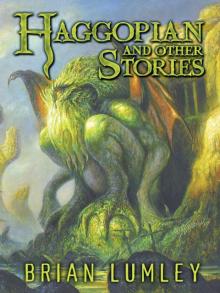 Haggopian and Other Stories
Haggopian and Other Stories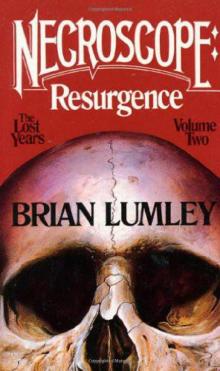 Resurgence_The Lost Years_Volume Two
Resurgence_The Lost Years_Volume Two Necroscope: Harry and the Pirates: And Other Tales From the Lost Years
Necroscope: Harry and the Pirates: And Other Tales From the Lost Years Necroscope®
Necroscope® Dreamlands 5: Questers for Kuranes: Two Tales of Hero and Eldin
Dreamlands 5: Questers for Kuranes: Two Tales of Hero and Eldin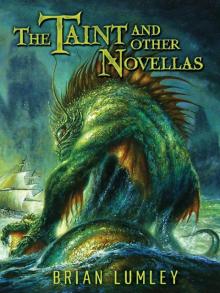 The Taint and Other Novellas: Best Mythos Tales Volume 1
The Taint and Other Novellas: Best Mythos Tales Volume 1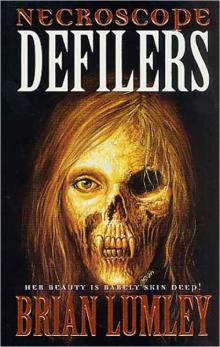 Necroscope: Defilers
Necroscope: Defilers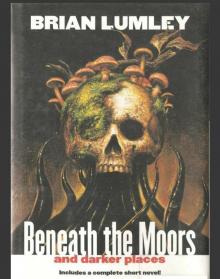 Beneath the Moors and Darker Places
Beneath the Moors and Darker Places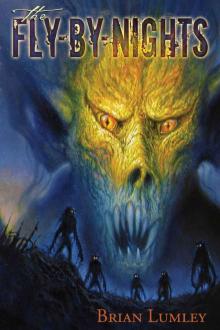 The Fly-By-Nights
The Fly-By-Nights Khai of Khem
Khai of Khem Ship of Dreams
Ship of Dreams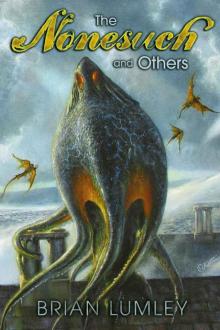 The Nonesuch and Others
The Nonesuch and Others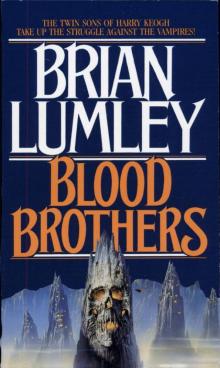 Blood Brothers
Blood Brothers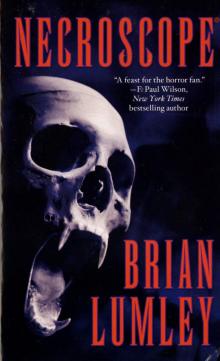 Necroscope
Necroscope The Burrowers Beneath
The Burrowers Beneath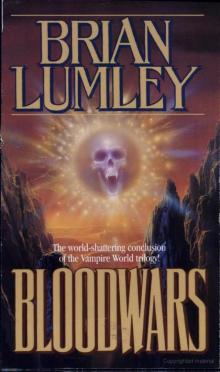 Bloodwars
Bloodwars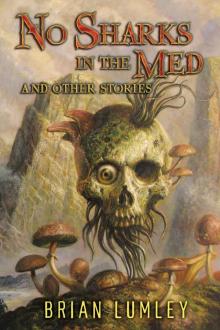 No Sharks in the Med and Other Stories
No Sharks in the Med and Other Stories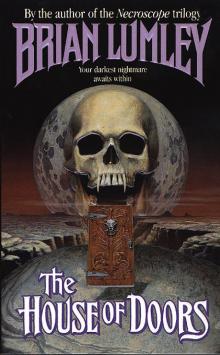 The House of Doors - 01
The House of Doors - 01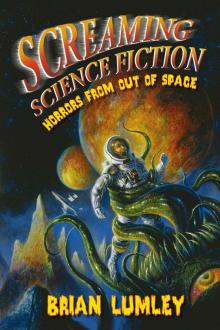 Screaming Science Fiction
Screaming Science Fiction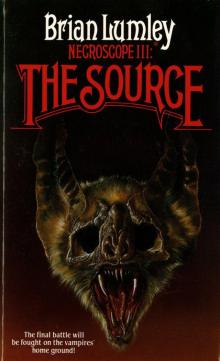 Necroscope III: The Source
Necroscope III: The Source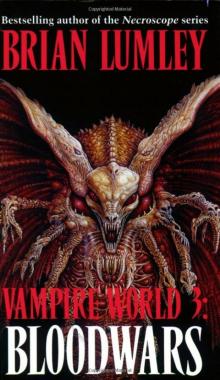 Vampire World I: Blood Brothers
Vampire World I: Blood Brothers Iced on Aran
Iced on Aran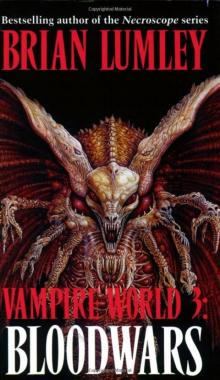 Necroscope: Invaders
Necroscope: Invaders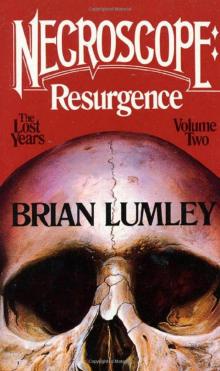 Necroscope: The Lost Years
Necroscope: The Lost Years Return of the Deep Ones: And Other Mythos Tales
Return of the Deep Ones: And Other Mythos Tales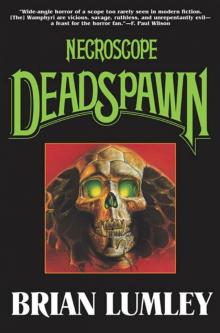 Necroscope V: Deadspawn
Necroscope V: Deadspawn Titus Crow, Volume 3: In the Moons of Borea, Elysia
Titus Crow, Volume 3: In the Moons of Borea, Elysia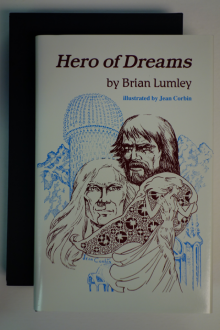 Hero of Dreams
Hero of Dreams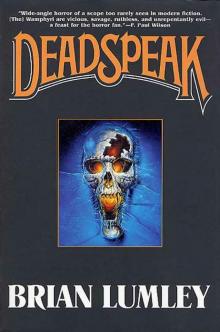 Necroscope IV: Deadspeak
Necroscope IV: Deadspeak The Last Aerie
The Last Aerie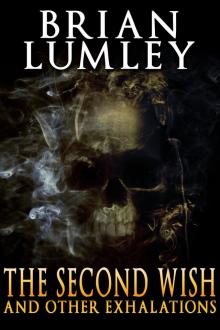 The Second Wish and Other Exhalations
The Second Wish and Other Exhalations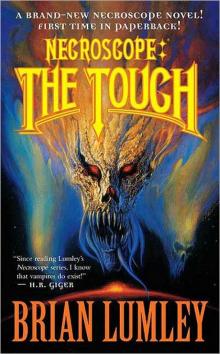 Necroscope: The Touch
Necroscope: The Touch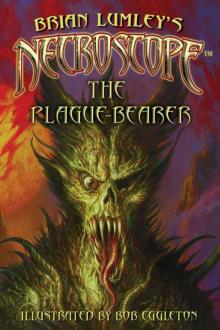 Necroscope: The Plague-Bearer
Necroscope: The Plague-Bearer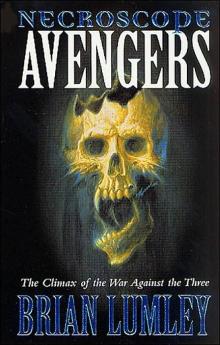 Necroscope: Avengers
Necroscope: Avengers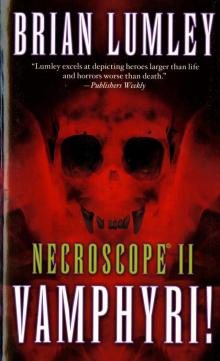 Necroscope II: Wamphyri
Necroscope II: Wamphyri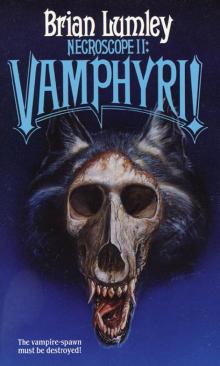 Necroscope II_Vamphyri!
Necroscope II_Vamphyri!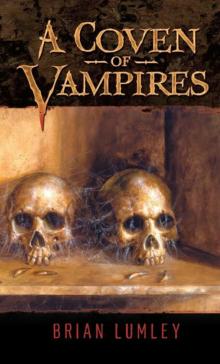 A Coven of Vampires
A Coven of Vampires Spawn of the Winds
Spawn of the Winds Sorcery in Shad
Sorcery in Shad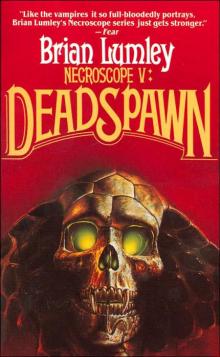 Deadspawn
Deadspawn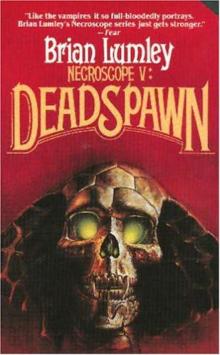 Necroscope V: Deadspawn n-5
Necroscope V: Deadspawn n-5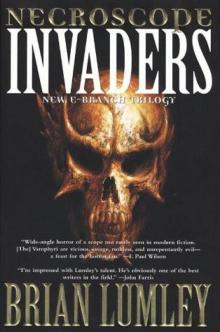 Necroscope: Invaders e-1
Necroscope: Invaders e-1![Beneath the Moors and Darker Places [SSC] Read online](http://i1.bookreadfree.com/i/03/20/beneath_the_moors_and_darker_places_ssc_preview.jpg) Beneath the Moors and Darker Places [SSC]
Beneath the Moors and Darker Places [SSC]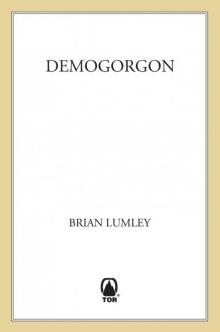 Demogorgon
Demogorgon Harry and the Pirates_and Other Tales from the Lost Years
Harry and the Pirates_and Other Tales from the Lost Years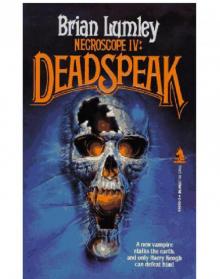 Necroscope IV: Deadspeak n-4
Necroscope IV: Deadspeak n-4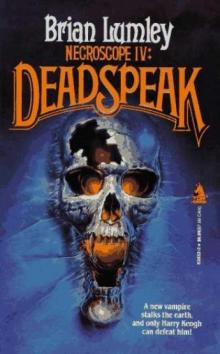 Deadspeak
Deadspeak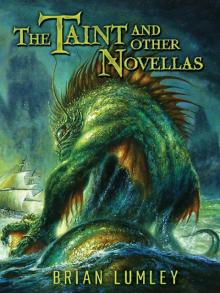 The Taint and Other Novellas
The Taint and Other Novellas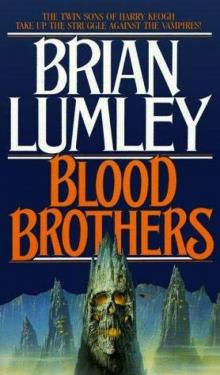 Blood Brothers vw-1
Blood Brothers vw-1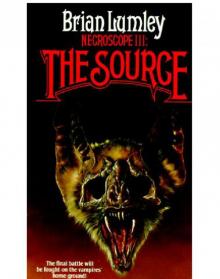 The Source n-3
The Source n-3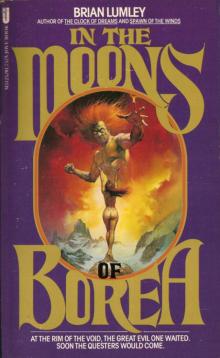 In the Moons of Borea
In the Moons of Borea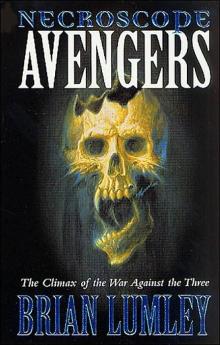 Avengers
Avengers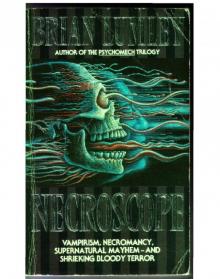 Necroscope n-1
Necroscope n-1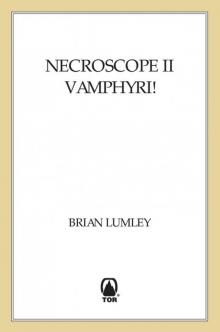 Vamphyri!
Vamphyri! Questers for Kuranes: Two Tales of Hero and Eldin
Questers for Kuranes: Two Tales of Hero and Eldin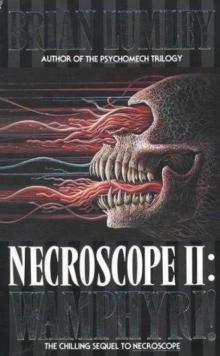 Necroscope II: Wamphyri! n-2
Necroscope II: Wamphyri! n-2 The Source
The Source Elysia
Elysia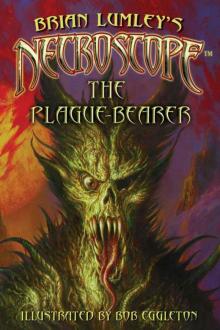 The Plague-Bearer
The Plague-Bearer The Touch
The Touch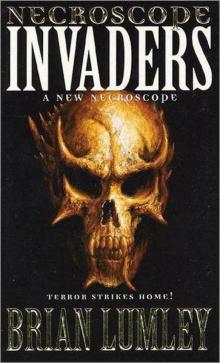 Invaders
Invaders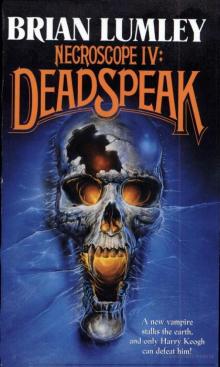 Necroscope 4: Deadspeak
Necroscope 4: Deadspeak Compleat Crow
Compleat Crow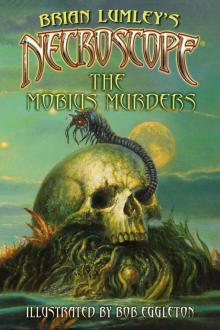 The Mobius Murders
The Mobius Murders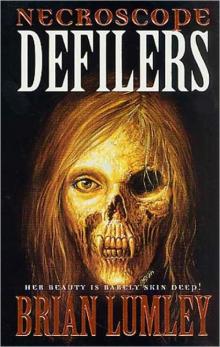 Defilers
Defilers